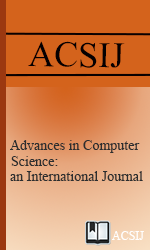A Secure Model for Remote Electronic Voting: A Case of Tanzania
Abstract
Tanzania is still using paper ballots system as the only voting channel despite the fact that other countries have already implemented remote electronic voting systems for their general and parliamentary elections. With the rapid evolution of Information and Communication Technology (ICT) in today’s world, Tanzania should as well seize the opportunity presented by ICT to modernize its electoral process. However, prior to the implementation of remote electronic voting technology, one of the key issues that should be addressed is the security. The importance of security in electronic voting system has been recognized for some time now but implementing a comprehensive security solution has been a challenging task. This paper proposes a secure model for implementation of remote electronic voting via mobile phone or Internet to be used for future presidential and parliamentary elections in Tanzania. We reviewed several remote electronic voting models, analyzed them, and identified their strengths and weaknesses as well as their components. As a result of this review and analysisthe secure remote electronic voting model was developed to meet the requirements of Tanzanian citizens. Data was collected using structured questionnaires. The data was collected from (1) experts in the area of information security, (2) lawyers, and (3) election officials.
Keywords
Remote Electronic Voting; Information Security; e-Government; Public Key Infrastructure; Electronic Identity
 Advances in Computer Science : an International Journal
Advances in Computer Science : an International Journal







